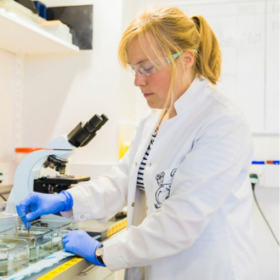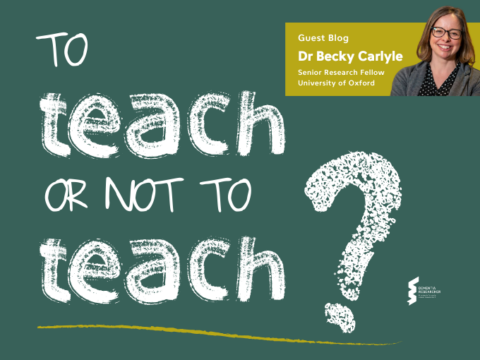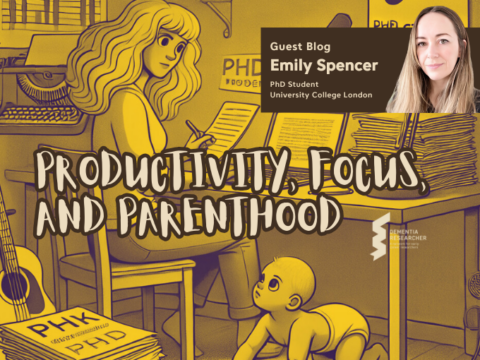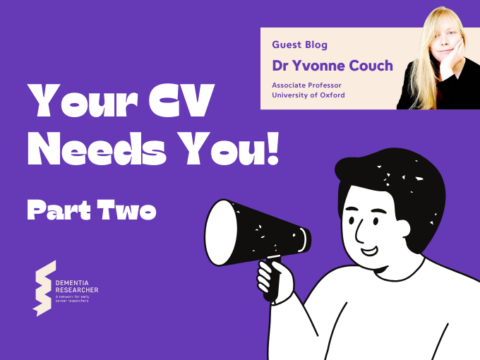Here’s the direct quote from a friend who shall remain anonymous which will tell you everything you need to know about what we’re going to talk about today. “I think the world should have prepared us better than they did for the realities of what life as a PI is like”. They then go on to expound on the things they’re not enjoying about life as a PI and mourn some of the things they’ve lost. So today I’m talking directly to all you junior people out there still working your way up the ladder and I’m going to tell you what’s waiting for you at the top and hopefully it will help inform your choices.
Let’s start with writing. If you do not like writing, the life of a PI is not for you. I recently told someone at lunch that I’d got some funding and now my job was to write up papers from my last grant and apply for more funding and she said “Yes, that’s pretty much your job from now on. You just have to sit in an office and beg for money”. And tragically she’s not wrong. I enjoy writing which is why I write so many of these things but there’s a lot of writing which is time consuming and not all that fun.
Grant writing for the most part is enjoyable, you get to have ideas and shape them and bring together disparate bits of research or new teams of people. You get to see how a project might look and think about how to best use the resources at your disposal. But it also comes with a lot of scribbling out budgets on large pieces of paper, of writing out ethics sections and thinking about recruitment. You need to make Gantt charts and write out impact statements, you need to endlessly liaise with finances and local reps to figure out whether a piece of kit technically counts as ‘equipment’ or not. You’ll need to put together the ‘justification of resources’ to prove why you need what you’ve asked for and to prove you’re not just going to take the money and spend it on hats. And once you’ve done all of that and poured your heart and soul into it they can still say no for no obvious reason beyond the fact that they only have so much money to go around.
Paper writing is the same but, in theory, you learn that fairly early on. Bringing the idea to fruition and putting it out there into the world can be fun. You get to put all the results down in a nice order, early in the process you get to use that to spot obvious holes in the project. You get to chat with colleagues about where it might go and how that might affect how you frame the results. But you also have to spend an age formatting graphs so they’re all lined up, figuring out what referencing style the journal needs and typing endless reams of methods. You then need to argue with reviewers for weeks and months by writing overly polite ‘we thank the reviewer for their time’ letters. You need to totally reformat it when it gets rejected so that it can be sent somewhere else. And that can go on for months, sometimes years.
But in addition to the ‘fun’ writing tasks there’s a lot that goes on that you need to do that’s not fun.
Most research comes with a ton of either ethics or safety. If you work with humans or animals you need to fill out endless pages of forms. Statements on adverse effects and adverse event reporting. Statements on refinement and replacement. Letters of approval and support. You need to think about the risk to you, the risk to the animal, the risk to the participant, you need to use language which is carefully sculpted to not get you into trouble and to not cause you to be sued. All of which involve endless emails and meetings and none of which you get any training to do because it’s just assumed that once you’ve seen one of these documents you’ll be able to just write one of your own.
But even if you don’t work with people or animals, cells and other lab bits and pieces are just as problematic. You need COSHH forms and standard operating procedures for everything in the lab. You need to fill in forms to bring chemicals in and then you need to fill in more forms to get rid of chemicals you don’t need any more. And all of this, when you have a big shiny lab or you work in a big shiny institute can be handled by the lab manager, because you have enough money to pay for one of those, but at the start, when it’s just you and a master’s student who has no idea what they’re doing, those forms are all yours my friend.

The biggest choke point in an academic career is going from postdoc to principal investigator (PI): moving from doing someone else’s research to getting other people to do yours. Being a PI is a fundamentally different job to being a postdoc; they just happen to be in the same environment. It is not an easy transition. It draws on few of the skills you learn at the bench, and the odds are clearly not ever in your favor.
And speaking of students, they come with their own set of writing tasks. When you get students in the lab you often have to do a lot of editing with them, teaching them how to write can sometimes be enjoyable but sometimes it can feel a lot like an uphill battle, especially if they’re very junior. Once you’re done helping them write their report then you have to submit letters of recommendation for them, or you have to write reports to the exam board on how they did. If you happen to be chosen as an external or internal examiner for a thesis or masters you have to write preliminary reports and post-exam reports. For junior members of staff, post-docs and research assistants, you might have to write letters of reference for new jobs. As you get more senior (it turns out, from every senior member of staff I’ve ever worked for) you apparently just get them to write these themselves and then you slap a signature on them but as a new PI your job is to provide them with a good letter of reference which you put together yourself, full of your own honest opinions.
And to get those staff you’ll need to have written job adverts and job descriptions. I recently had to put together a job description for myself, for a job I already had. And if that’s not a glorious waste of my time I don’t know what is. You’ll need to fill these descriptions with essential and non-essential criteria crafted in such a way that you’re not overwhelmed with spurious applicants but also that you definitely get more than zero. You’ll need to fill your website with sales pitches so your research sounds as awesome as you think it is so that you attract students and post-docs. And if you pitch it right then your next job is to sift through forty applications and figure out which ones you want to interview. You’ll have to write out a template letter of rejection to those you’re not interviewing, and then after you’ve interviewed you’ll have to write out a more personalised list of how the applicants didn’t meet all the criteria you spent an age writing, even if they absolutely did but you just liked the other person better.
If you manage to get a lectureship or some kind of important departmental position then in addition to your writing tasks you get to have meetings. Lots and lots of meetings. Some of them will be enjoyable. You might get to sit on student advisory panels where you get to help researchers develop, or you get to sit on grant review boards where you get to read and talk about new research. But you might also have to sit on the local health and safety committee and talk about the uptake of safety goggles and the placement of eye wash stations. You might have to sit on the ethics board and have endless circular arguments about the legal minutiae of a study. You might have to sit on the space committee and talk about who gets what bench space. If you can’t tell I’m a big fan of ‘this meeting could have been an email’ which is why nobody invites me to these things.
And you can try and do all of this and be in the lab and do research at the same time but the chances are you won’t be successful. If you’ve got a few people in the lab and you’re trying this, chances are you’re neglecting all the admin tasks they’ve sent you and sooner or later they’ll start to resent you. If you’ve got a few people in the lab and you’re just sitting in the office focusing on all the admin tasks they’ve sent you, then they’ll resent you anyway because you don’t understand what it takes to do an experiment any more. Really, it’s lose-lose.
And all of this means you’re not in the lab trying out that new piece of kit you so desperately wanted to buy to do the experiments you so desperately wanted to run. And maybe you never will get to use that bit of kit because you have a PhD student now and they don’t like it when you touch things in the lab. So, you’re resigned to your office scribbling away so that they can continue their upward trajectory to eventually sit in your office, also scribbling away because in academia, this isn’t a job any more. It’s a competition.
But what you need to realise is that all of this waffle means you have a lot of skills that are needed and well-thought of elsewhere. You are a critical thinker and a writer and a problem solver. You work well independently and within a team. You’re organized and have good time-management and presentation skills. You could work pretty much anywhere you wanted so if all of the above sounds like the chaotic mess that it is then you take those skills where they’re really valued.
I still enjoy new experiments. New experiments using new bits of kit where I have no clue whether they’re going to work or whether they’re going to fail. And if they do fail, I’m going to have all kinds of fun figuring out what went wrong and trying them again. I am, however, finding that this is making me increasingly nervous as I get more senior. I can’t afford for experiments to go wrong because failed experiments don’t get papers and people with no papers don’t get grants.
“Why don’t you leave then?” I hear you cry, “Your job is clearly making you anxious, bitter and angry and this is clearly not a combination which is going to be beneficial for your mental health”. No, no it’s not. But I’ve been at this too long and I’ve got the worst case of academic Stockholm syndrome possible. I’ve been crushed into believing I could not possibly do anything else. And for those few days when I don’t have to do endless academic admin tasks and I get to be in the lab, discovering something new, I have the best time.

Dr Yvonne Couch
Author
Dr Yvonne Couch is an Alzheimer’s Research UK Fellow at the University of Oxford. Yvonne studies the role of extracellular vesicles and their role in changing the function of the vasculature after stroke, aiming to discover why the prevalence of dementia after stroke is three times higher than the average. It is her passion for problem solving and love of science that drives her, in advancing our knowledge of disease. Yvonne shares her opinions, talks about science and explores different careers topics in her monthly blogs – she does a great job of narrating too.

 Print This Post
Print This Post






